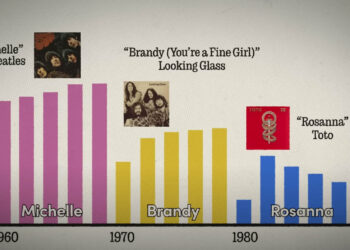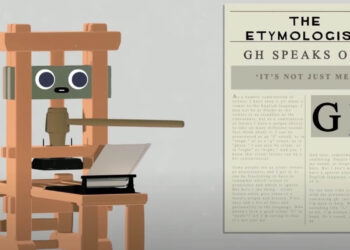Since tomorrow is April 1, the annual day the internet becomes useless for 24 hours, I thought I’d move up Friday’s video post by a day.
Here’s a short and interesting video about the development of the English language and how, because it has roots in both Germanic and Romance languages, we’ve ended up with multiple words for the same thing.
Discussion
3 Thoughts on "Why Does English Have So Many Words That Have Twins?"
The video hints at the fact that the situation is actually more complicated than described. English has many triplets: the Germanic word, the word borrowed from French, and then the word borrowed directly from Latin.
Here is a quote with examples:
“But language tends not to do what we want it to. The die was cast: English had thousands of new words competing with native English words for the same things. One result was triplets allowing us to express ideas with varying degrees of formality. Help is English, aid is French, assist is Latin. Or, kingly is English, royal is French, regal is Latin – note how one imagines posture improving with each level: kingly sounds almost mocking, regal is straight-backed like a throne, royal is somewhere in the middle, a worthy but fallible monarch.”
https://aeon.co/essays/why-is-english-so-weirdly-different-from-other-languages
David: Interesting linguistic analysis. But, as any geneticists will tell you: Twins – its a family thing!



